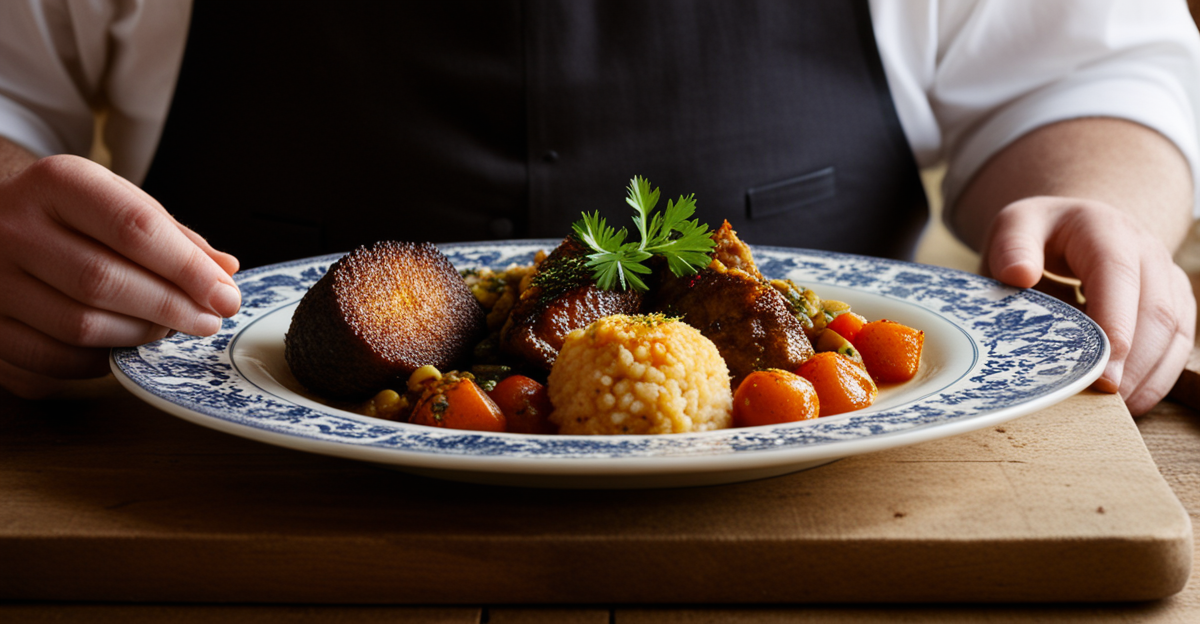The Role of Traditional UK Dishes in Defining British Identity
Traditional UK dishes hold immense cultural significance as key reflections of British culture and national identity. These foods act as tangible symbols of Britain’s history, values, and customs. For many, classic dishes like the Sunday roast or fish and chips are not just meals but shared experiences that foster a sense of belonging.
The cultural significance of traditional UK dishes goes beyond mere sustenance; they serve as anchors of identity that bond diverse communities across the country. The way these foods have been passed down through generations highlights their role in maintaining continuity within British society. Their popularity is a testament to how food acts as a unifying force, representing a collective heritage that transcends regional or social divides.
Have you seen this : What are the key ingredients for an authentic bangers and mash?
Moreover, traditional UK dishes often carry historical context that enriches their importance in British culture. Recognizing the roots of these iconic meals helps explain why they remain ingrained in national consciousness. From humble origins reflecting seasonal and local resources, these dishes have become emblematic of British life, underscoring the close relationship between cuisine and identity.
In summary, traditional UK dishes are pivotal in defining and expressing British identity. They encapsulate historical experiences and cultural values, playing an essential role in shaping the shared narratives that unite people across the United Kingdom.
Topic to read : How can you achieve the ideal consistency for Yorkshire pudding batter?
Historical Roots and Evolution of Classic Dishes
Traditional UK dishes are deeply rooted in British food history, reflecting centuries of culinary development shaped by diverse influences. The origins of iconic meals such as fish and chips and meat pies date back to periods when regional resources and social needs dictated food choices. For instance, fish and chips emerged in the 19th century as an affordable, filling meal for working-class communities, combining fried fish introduced through Jewish immigrants with British potato frying techniques. This dish exemplifies how origins of traditional dishes intertwine with historical migration and trade.
The evolution of these classic dishes also mirrors broader patterns of conquest and commerce. Roman, Viking, and Norman invasions introduced new ingredients and cooking methods, while trade expanded access to spices and preserved foods. This ongoing exchange contributed to the development of British culinary heritage by blending native and imported elements. For example, pies evolved both as a practical means of cooking and preserving food, and as a canvas for diverse fillings, showcasing how tradition and innovation coexist in British cuisine.
Understanding the food evolution of traditional UK dishes helps explain their continued prominence today. Present-day eating habits still echo historical preferences for hearty, locally sourced meals, revealing a strong connection between past and present. The preservation and adaptation of these dishes illustrate how British food history remains a living, influential force shaping national identity and culinary practices.
Regional Variations and Local Customs
Traditional UK dishes showcase rich regional UK cuisine that highlights the diversity within British food traditions. Each region boasts distinctive dishes that signify local identity and pride. For example, the Cornish pasty originates from Cornwall and is known for its sturdy, portable design suited for miners, while Scotland’s iconic haggis reflects ancient culinary customs using locally available ingredients. Similarly, Welsh rarebit—a savory cheese sauce served over toasted bread—is emblematic of Wales’ unique contributions to British food heritage.
Local food customs extend beyond recipes, involving community-centered events and celebrations. Regional food festivals provide an opportunity for people to gather and celebrate their culinary heritage, reinforcing bonds and maintaining traditional preparation methods. These festivals often highlight the cultural significance of local dishes, underscoring their role in strengthening community ties and expressing regional identity.
The significance of regional food pride lies in its ability to uphold distinct identities within the broader framework of British culture. Such pride promotes an appreciation for culinary variety, and it encourages the preservation of food customs that might otherwise be lost. By honoring regional UK cuisine and local food customs, communities sustain cultural continuity and contribute to the rich tapestry of British food traditions.
The Role of Traditional UK Dishes in Defining British Identity
Traditional UK dishes are powerful symbols that embody British culture and reflect the nation’s shared national identity. They do more than satisfy hunger; they represent collective memories and shared values that unite people from diverse backgrounds. These foods are deeply woven into the fabric of British life, serving as tangible links to the past and markers of community belonging.
The cultural significance of traditional dishes lies in how they function as living artifacts of history and social cohesion. For example, the Sunday roast isn’t merely a meal; it’s a weekly ritual reinforcing family ties and cultural continuity. Similarly, fish and chips serve as a reminder of working-class resilience and immigrant influence, highlighting how food traditions blend historical narratives with everyday life. This intertwining of food and identity offers a clear answer to why such dishes remain central to British consciousness.
Traditional UK foods act as bridges that connect generations and social groups, fostering a sense of unity within diversity. Through shared preparation and consumption, these dishes help sustain a common heritage that transcends regional and class divisions. This communal aspect further emphasizes their importance in defining British identity by enabling cultural exchange and mutual recognition across the United Kingdom.
The Role of Traditional UK Dishes in Defining British Identity
Traditional UK dishes serve as powerful mirrors of British culture and play a pivotal role in shaping the nation’s national identity. These foods do more than nourish; they carry deep cultural significance, connecting people to collective experiences and shared histories. But how exactly do these dishes reflect such a broad sense of identity?
At their core, traditional UK dishes function as living embodiments of the country’s diverse past. For instance, fish and chips not only represent a popular meal but also encapsulate stories of immigration and industrial working-class life. This historical context enriches their meaning, making them symbolic of resilience, unity, and adaptation. Similarly, the Sunday roast transcends being a mere meal by acting as a weekly ritual that reinforces family bonds and cultural continuity.
Furthermore, these traditional foods bind diverse communities by providing a common language of taste and tradition. Whether enjoyed in bustling cities or rural villages, the shared appreciation of iconic dishes fosters a sense of belonging that crosses social, regional, and generational boundaries. This widespread connection helps explain why traditional UK dishes remain central to British identity despite societal changes.
By embodying historical narratives and nurturing community cohesion, traditional UK dishes do more than sustain hunger—they sustain a collective sense of national identity and celebrate the enduring fabric of British culture.







